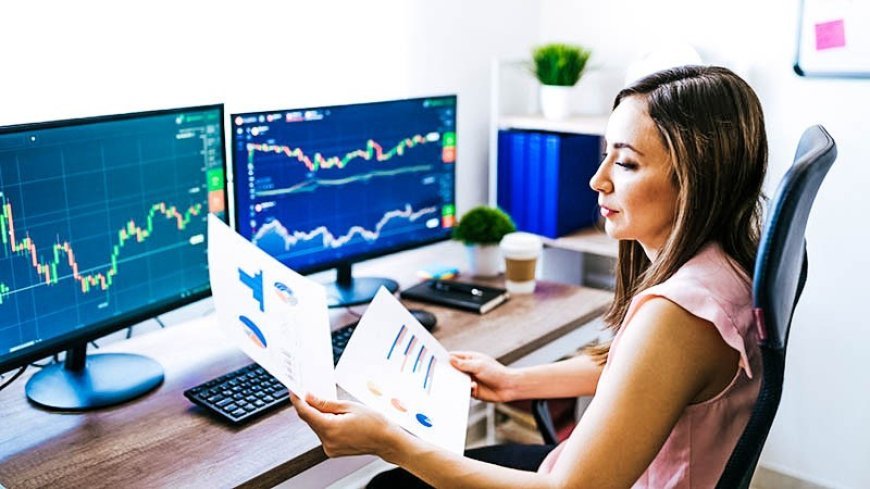Forex Trading Massachusetts
Forex Trading Massachusetts, Stock investments, Forex, Crypto Currency & Meme Coins Trading myfastbroker.com forex brokers online fintechzoom best.

Forex Trading in Massachusetts: A Comprehensive Guide
Forex trading, or foreign exchange trading, is a popular investment activity where traders exchange currencies to profit from fluctuations in currency values. Massachusetts, known for its financial hubs and educated workforce, offers numerous opportunities and resources for aspiring forex traders. This article provides a detailed overview of forex trading in Massachusetts, covering its legal landscape, trading platforms, regulations, and FAQs.
1. Understanding Forex Trading
What Is Forex Trading?
Forex trading involves buying one currency and selling another simultaneously. The objective is to profit from the price difference between the two currencies. The forex market operates 24/5, making it the largest and most liquid financial market in the world.
Why Trade Forex?
- High liquidity
- Potential for significant returns
- Leverage options
- 24-hour trading sessions on weekdays
2. Legal Landscape of Forex Trading in Massachusetts
Is Forex Trading Legal in Massachusetts?
Yes, forex trading is legal in Massachusetts. However, traders must adhere to regulations set forth by U.S. authorities such as:
- Commodity Futures Trading Commission (CFTC)
- National Futures Association (NFA)
These bodies ensure that brokers and traders operate ethically and transparently.
Licensing Requirements
Forex brokers offering services in Massachusetts must register with the NFA and CFTC. Traders should verify that their chosen broker is regulated to avoid scams and ensure security.
3. Choosing a Forex Broker in Massachusetts
Key Considerations for Selecting a Broker
- Regulation: Ensure the broker is NFA and CFTC compliant.
- Trading Platform: Look for intuitive and reliable platforms like MetaTrader 4/5, cTrader, or proprietary solutions.
- Fees: Compare spreads, commissions, and other trading costs.
- Leverage: Check for appropriate leverage options that align with your risk appetite.
Popular Forex Brokers in Massachusetts
- TD Ameritrade Forex: Renowned for its robust platform and educational resources.
- OANDA: Offers low spreads and an excellent trading interface.
- IG Markets: Known for its vast range of tradable instruments and advanced tools.
4. Forex Trading Strategies
Common Strategies
- Day Trading: Buying and selling within a single trading day.
- Swing Trading: Holding positions for several days to capitalize on market swings.
- Scalping: Making multiple trades to profit from small price movements.
- Position Trading: Long-term strategy based on fundamental analysis.
Risk Management Techniques
- Set Stop-Loss Orders: Limit potential losses.
- Diversify Investments: Spread risks across multiple currencies.
- Leverage Cautiously: Use leverage wisely to avoid excessive losses.
5. Forex Trading Resources in Massachusetts
Educational Resources
Massachusetts is home to institutions like MIT and Harvard, offering courses and seminars on finance, including forex trading. Local trading communities and online platforms also provide valuable learning opportunities.
Trading Communities
Engage with trading communities in Boston and other cities to share insights, discuss strategies, and stay updated on market trends.
FAQs: Forex Trading in Massachusetts
1. Do I Need a License to Trade Forex in Massachusetts?
No, individual traders don’t need a license. However, brokers must be licensed by the NFA and CFTC.
2. What Taxes Apply to Forex Trading Profits?
Forex trading profits in Massachusetts are subject to federal income tax and state taxes. Traders must file gains under Section 1256 or Section 988, depending on the trading instrument and style.
3. Can I Trade Forex on My Smartphone?
Yes, most brokers provide mobile trading apps compatible with Android and iOS, allowing traders to manage positions on the go.
4. Is Forex Trading Risky?
Yes, forex trading carries a high level of risk due to market volatility, leverage, and unforeseen geopolitical events. Proper risk management is essential.
5. What Is the Minimum Amount Needed to Start Trading Forex in Massachusetts?
The minimum amount varies by broker but generally ranges from $50 to $500. However, it’s advisable to start with a larger amount to accommodate margin requirements.
6. How Can I Avoid Forex Scams?
- Verify the broker's registration with the NFA and CFTC.
- Avoid brokers promising guaranteed profits.
- Read reviews and check for a transparent track record.
7. Are There Any Local Forex Seminars or Workshops?
Yes, many organizations in Boston and other Massachusetts cities host forex trading workshops and seminars. Check with local financial institutions or online platforms for schedules.
8. What Currencies Are Most Popular for Trading?
The most traded currency pairs include:
- EUR/USD (Euro/US Dollar)
- GBP/USD (British Pound/US Dollar)
- USD/JPY (US Dollar/Japanese Yen)
9. Can I Use Leverage in Forex Trading?
Yes, leverage is available but is capped by U.S. regulations. The maximum leverage for major currency pairs is typically 50:1.
10. How Do I Choose the Right Trading Platform?
Consider features like user-friendliness, charting tools, execution speed, and customer support. MetaTrader 4 and 5 are highly recommended for beginners and advanced traders.
Conclusion
Forex trading in Massachusetts offers exciting opportunities for financial growth. By understanding the legal landscape, selecting a regulated broker, and developing sound trading strategies, traders can navigate this dynamic market successfully. Stay informed, manage risks wisely, and leverage local resources to enhance your trading journey.

 btxadmin
btxadmin 





